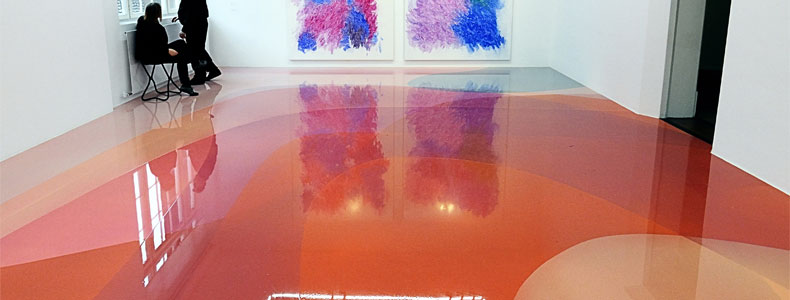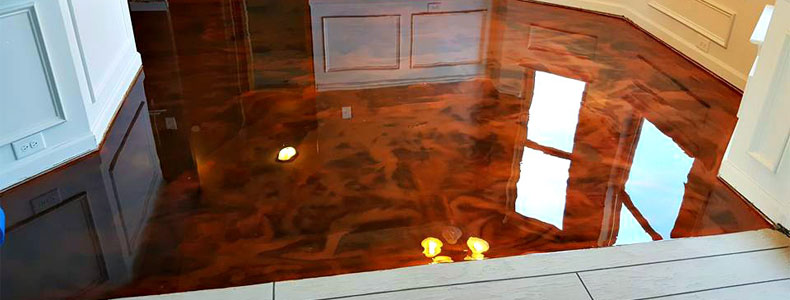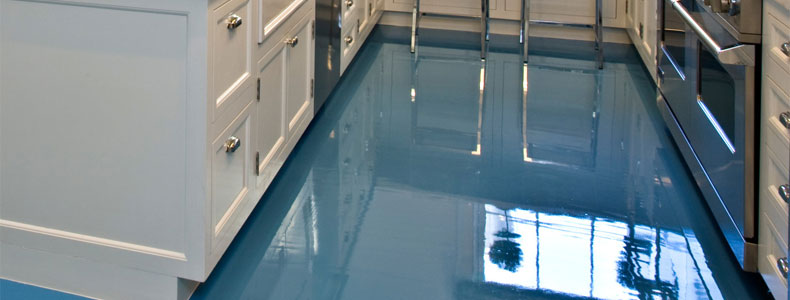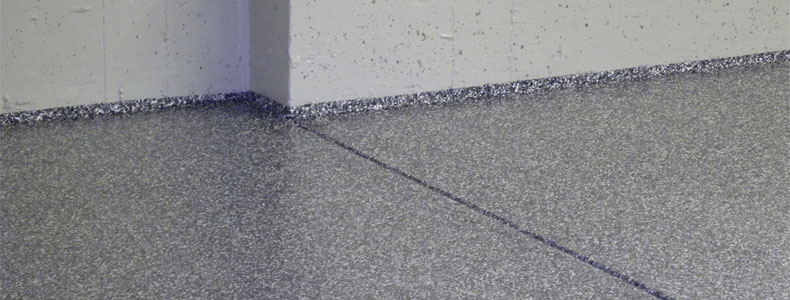Choosing The Best
Epoxy Floor Coatings

Are you looking for an epoxy flooring system? We know that the process can be a tad overwhelming due to the many different types of epoxy that you can find on the market. How in the world are you supposed to find out which epoxy is the best for you and how you are going to be using it? Is there a specific way to tell? Well, as a matter of fact, there is! What you are going to be looking out for the most is the three major types of epoxy flooring, 100 percent solid, water-based and paint “epoxies”. We know you need to know how to tell these apart and what they can do for you. So today, we are going to be taking a closer look at the types of epoxies and which one is generally the best option down below!
100 Percent Solid Epoxies

One of the best ways to tell what you are getting with epoxy is the number of elements in the flooring system. With the 100 percent solid epoxy system, there are 2 parts; as there should be for epoxy, the epoxy resin, and the hardener. The pure formula is what makes the system so strong is that there are no chemical additives or solvents to provide a thick, attractive and long-lasting flooring solution. Down below, you will find the benefits and the disadvantages of using a 100 percent solid epoxy-based flooring system:
Pros
- Dry times only take up to 24 hours
- Is the longest-lasting type of epoxy
- Provides a finish capable of 15,000 PSI
- Resists most chemicals with ease
Cons
- Exudes a toxic smell when applied
- Is more costly than other epoxies
- Extremely hard to DIY
- Will be harder to obtain
Two-Part Water-Based Epoxies

The water-based epoxy is true in the form that is a two-part system but don’t let that make you think that it is just as good as the 100 percent solid epoxy system. Don’t get me wrong, they are good but they just aren’t great. The water-based epoxy uses, you guessed it, water as a solvent. With water being in the mixture, you can expect the water-based epoxy to take much longer to dry than the 100 percent solid system. But, this shouldn’t deter you from using this type of epoxy as there are many pros; but also cons, that make this flooring a viable option for any light-duty commercial facilities or residential setting:
Pros
- Less toxic during application
- Tools can be cleaned with soap and water
- Between 50-100 dollars a gallon for materials
Cons
- Will need to be rejuvenated every 2-5 years
- A full cure takes 2-3 days after installation
- Much less durable than a 100 percent solid epoxy
One Part Epoxy Paints

Though they are one of the hottest trends on the DIY market; for reasons we can’t explain, one part epoxy paints are one of the worst investments you can make for your home. If you thought that these kits that you could pick up from the local hardware store could be just as good as a professionally installed epoxy floor, sadly they are nowhere close. They are however a very budget-friendly option that can be used to provide an attractive finish for your concrete until you can install a real epoxy flooring system. These one-part epoxies offer the following pros and cons:
Pros
- Usable in all budgets
- Can be found in most stores
- DIY friendly with easy application
Cons
- Only last 2-3 years at best
- Unreliable protection
- Will bubble up if the concrete wasn’t prepared correctly
When it comes down to it, all different types of epoxies have a use in all settings whether it be for performance or simply for looks. While one part epoxies may not be the best option for commercial or industrial facilities, they can be the perfect coating for a garage that doesn’t see much use. On the other side of the spectrum, a 100 percent solid epoxy floor coating will be needed in heavy-duty instances with the 2 part water-based epoxy being the divider that can be used in both instances. Now that you know all about the different types of epoxy, the decision of which one is the best will be left up to you. We wish you good luck on all of your upcoming and future home improvements!
